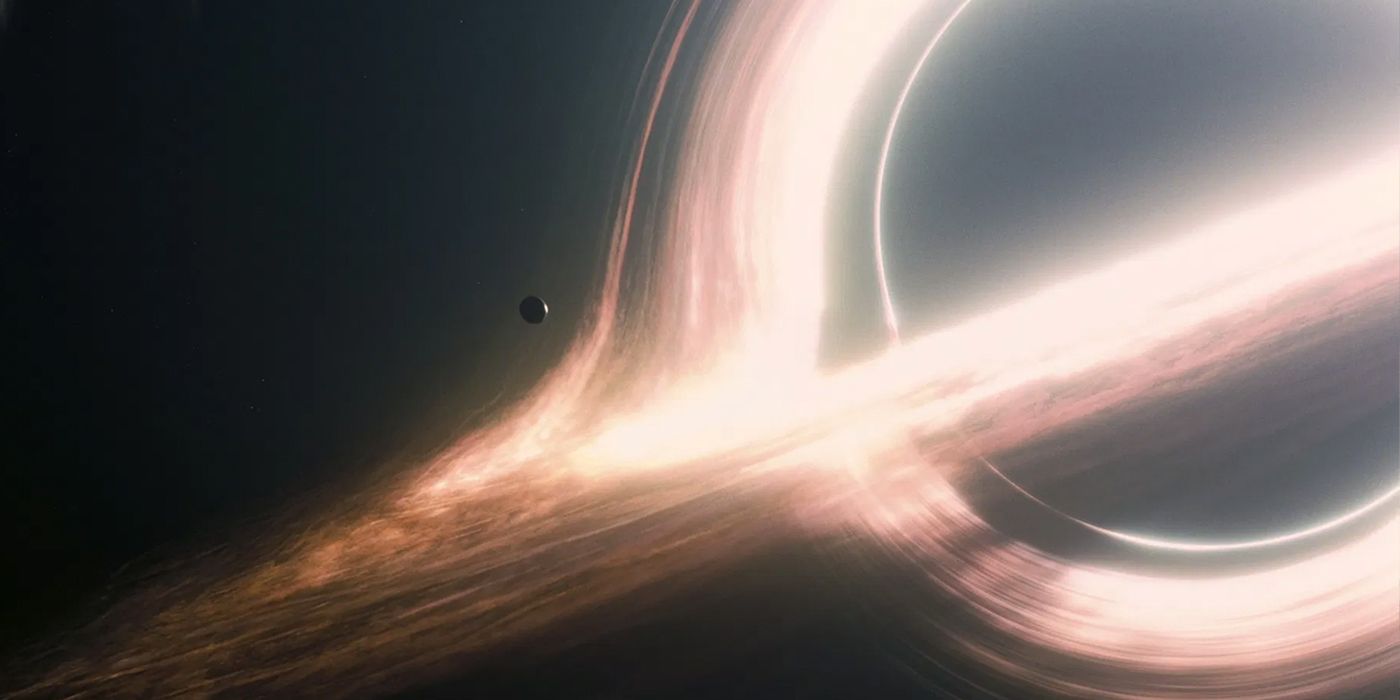Since Cooper and his crew’s arrival on Miller’s planet is one of the most pivotal and jarring moments in Interstellar, the time dilation on the planet and its consequences deserve an in-depth explanation. In pursuit of finding an exoplanet capable of supporting human life, Cooper and his crew travel through a mysterious wormhole after setting their eyes on three planets. Their first destination in this journey is Miller’s planet, an ocean world where explorer Laura Miller was the first set base camp. Hoping that Miller’s planet will be capable of sustaining human life, they make their way to it.
As Miller and the crew reach their destination, they find three planets orbiting around a supermassive black hole, Gargantua. While one crew member, Romily, decides to stay back in orbit and study Gargantua’s gravity, others head to Miller’s planet’s surface, hoping to find answers the answers they seek. However, with what follows, things take a grim turn when not only do they not only face the threat of giant tidal waves on the planet but also experience extreme time dilation. Here is a breakdown of what time dilation means, what causes it, and how it makes Miller’s death sadder in Interstellar.
Miller’s Planet’s Time Dilation Is Caused By The Nearby Black Hole

According to Einstein’s theory of general relativity, mass and energy warp or “bend” the fabric of space and time. This curving of spacetime is what is referred to as gravity. Since time is directly affected by gravity, according to Einstein’s theory, the passage of time is relatively different in regions that experience different gravitational fields. Owing to this, when a celestial body is closer to the strong gravitational field from a massive star, planet, or black hole, time on it passes slower compared to an object that experiences a weaker gravitational pull. In Interstellar, Miller’s planet is close to a supermassive black hole, Gargantua.
Since the black hole creates a massive curvature in spacetime with its gravitational fields, Miller’s planet experiences extreme time dilation. Because of this time dilation from Gargantua’s gravitational fields, time on Miller’s planet moves relatively slower than Earth’s. Specifically, for every one hour on Miller’s planet seven years pass on Earth for Cooper and his crew. Interstellar reveals that Cooper and his team spent twenty-three years, four months and eight days in Earth time on Miller’s planet, suggesting that they were roughly down there for only three hours and seventeen minutes.
RELATED: ‘Interstellar’ Ending & Space Travel Explained
How The Planet’s Time Dilation Makes Miller’s Death More Tragic

According to Earth’s time, Laura Miller arrived at the water planet years before Cooper and the team. However, due to the time dilation effect, she died only a few minutes before Cooper and his crew arrived at the planet. This relativity makes Miller’s death all the more tragic because although she hardly spent any time on the planet before her death, everyone she ever knew lived several years without her on Earth. The mere thought of the relative isolation she experienced by spending years on the planet in Earth’s time, putting a significant portion of her life into futile research when she could have done so much more on Earth, is simply tragic.
How Hans Zimmer’s Mountains Symbolizes The Planet’s Time Dilation

Hans Zimmer’s original score for Christopher Nolan’s Interstellar, “Mountains,” which plays during the Miller’s planet scene, has a constant ticking sound in the background. A theory suggests that each tick in the soundtrack seems to represent the passing of a day on Earth. As confirmed by Redditor (via Reddit), even the math of this theory seems to add up, suggesting that Hans Zimmer must have intentionally orchestrated the soundtrack to ensure that it is in tandem with Interstellar‘s complex depiction of time. The ticking sound also gradually speeds up the closer Cooper and his crew get to the planet, reflecting how the gravitational field increases as they reach the surface.
While no official confirmations have been made surrounding this theory, it is in the realm of possibility that Hans Zimmer was extremely calculative about the ticks in the score. After all, this would not be the first time the music composer manipulated his soundtracks to fit into Christopher Nolan’s complex portrayal of time in movies. For instance, before Interstellar, Hans Zimmer and Christopher Nolan used music as a narrative device in Inception‘s opening scene by featuring a slowed version of Edith Piaf’s “Non, Je ne Regrette Rien” to highlight how time runs slower in dreams compared to real-time.





